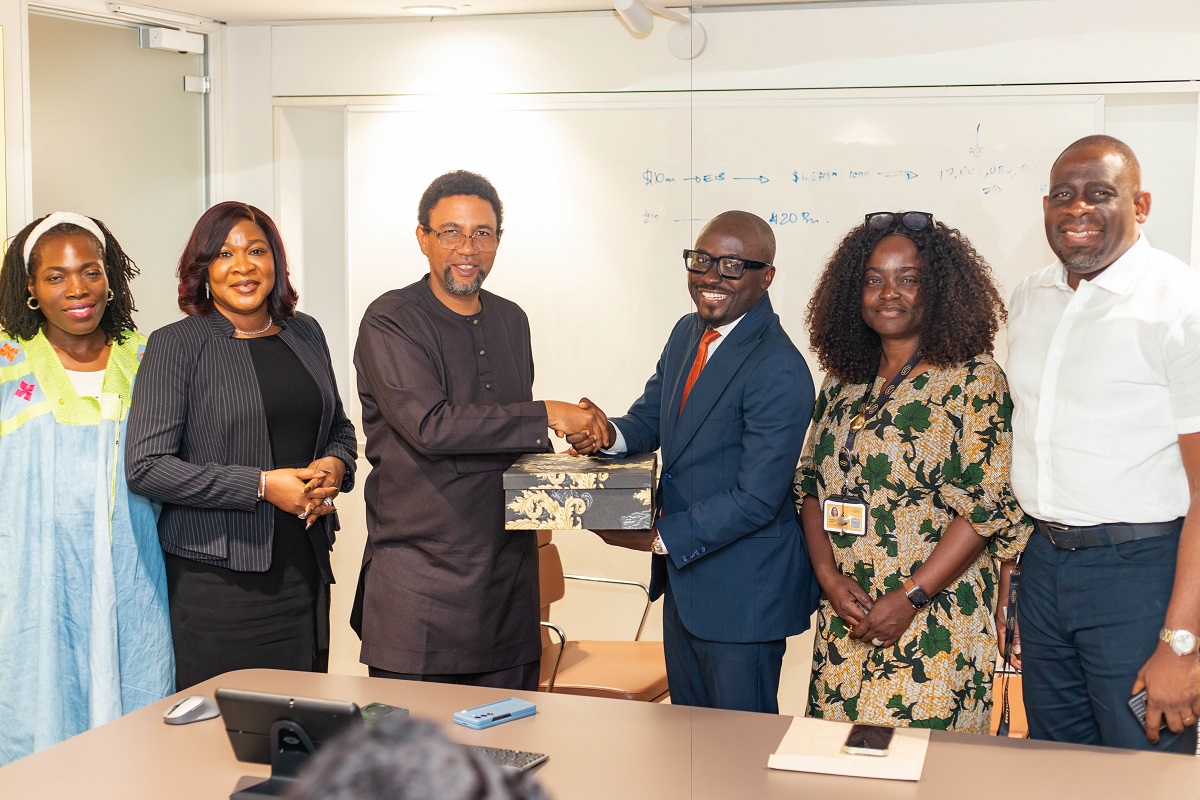Telecom
Cellular Connectivity Key to Tackle Surging Electricity Demand, says Ericsson

Ericsson has released a Connected Energy Utilities report in partnership with Arthur D. Little, highlighting the significance of cellular technology in the digitalization of the energy sector.

As energy costs and demand for electricity rise, the report explores a vision of the near future in which the utility sector harnesses cellular connectivity to mitigate the increasing complexities of meeting the needs of a rapidly evolving electric grid and consumer demand profiles – enabling utility providers to expand capacity, optimize utilization of infrastructure, increase grid reliability, and boost operational efficiency through a secure and reliable network.
In addition to growing demand and an ever-evolving mix of energy sources, the utility sector is also facing growing challenges in cost control and cybersecurity.
With the demand for electricity growing at an expected 2% compounded annual growth rate (CAGR) over the next two decades, the report notes that utility providers need to make investments in new technologies in order to meet these demands and best serve consumers. Ericsson technology provides management services for private networks, public mission-critical infrastructure and IoT deployments.
Also highlighted in the report are changes in the energy value chain. As renewable energy sources continue to become more available and viable, consumers are becoming “prosumers,” feeding energy back into the grid – through solutions such as residential rooftop solar PV – while simultaneously consuming it, shifting the value chain from traditional one-way electricity flow to being circular in nature.
4G LTE technologies in particular will prove to be crucial over the next decade and beyond in handling the bi-directional energy flow from prosumers and increased fluctuations in power production stemming from renewable energy sources, with 5G connectivity expected to come into play in the future.
Koustuv Ghoshal, Vice President & Head of Utilities, Ericsson, says, “Cellular connectivity is helping to accelerate the digital transformation of utilities. Electrical infrastructure has an operational lifetime of up to five decades.
So, for utilities, connectivity technology is a worthwhile investment as it will continue to provide extensive business value for years to come.
“As power generation methods expand to include renewables and the demands on transmission/distribution grids become more complex, it is vital for the utility sector to evolve along with it through continued integration of advanced cellular technology.”
Several benefits of this technology have already been proven, supporting internal communications, worker safety, automation, user experience and insight-driven innovation, bringing digitalization to the forefront of efficient business operations.
While still evolving, cellular technology also already presents use cases of real time data exchange, automatic grid fault detection, distribution automation, connected electric vehicle charging, and building energy management and optimization.
Ericsson’s report also highlights future use cases in partnership with enterprises across the globe such as Thales, Chungwa Telecom, Southern Linc, and Blue Corner, from remote site drone inspections and a digitally-enabled workforce to modernization of legacy communications and predictive maintenance.
Telecom
MTN Plans Second Public Offer in Nigeria

Ralph Mupita, president,MTN Group, has announced plans to reduce its shareholding in MTN Nigeria through a public offer after it returns to profitability.

The group aims to cut its stake from 76 percent to 65 percent in line with its longstanding commitment to deepen local ownership, according to ITWeb, South African tech publication.
Mupita, who disclosed the plan during an editors’ roundtable meeting this week, said “The only localisation we have as MTN Group is we have potentially a sell-down in Nigeria at some point in time, approximately 11 percent. This is something we have said long ago, that over time, we would want more Nigerians owning the company, and we are prepared to sell down to 65 percent. We are at around 76 percent,” he said.
The anticipated offer would mark MTN’s second major retail public offering in Nigeria, following its 2021 sale of 575 million MTN Nigeria shares to local investors.
That offer was oversubscribed, resulting in the allocation of 661.25 million shares, including a 15 percent greenshoe option. This reduced MTN’s stake in its Nigerian unit to 75.6 percent from 78.8 percent.
More than 126,000 investors participated in that round, including retail and institutional investors such as Nigerian pension funds, representing approximately 6.5 million contributors.
At the time in 2022, MTN Group announced plans to further reduce its stake to approximately 65 percent from 75.6 percent.
Mupita confirmed that the Group would only proceed with a new offer once MTN Nigeria resolves its negative equity position and resumes dividend payments.
Currently, MTN Nigeria’s shares are trading at N235 per share.
Despite reporting a revenue of N3.36 trillion in 2024, a 36.03 percent bump from N2.47 trillion in 2023, it posted a loss after tax of N400.44 billion, a 192.25 percent rise from N137.02 billion in 2023.,
This negative performance was driven by macroeconomic headwinds, including record inflation and a steep devaluation of the naira, which raised operating costs and wiped out investor value.
MTN Nigeria has fallen behind MTN South Africa as MTN Group’s largest revenue contributor.
However, the Group is projecting a rebound in 2025, citing key drivers such as recent tariff adjustments, operational restructuring, and improving macroeconomic indicators in Nigeria.
Speaking at the roundtable, Mupita highlighted that the Group is anticipating a V-shaped recovery in Nigeria’s service revenue. He pointed to the recent structural reforms, such as the removal of fuel subsidies, the naira stabilisation, and improved dollar availability.
“The continued normalisation of these factors, particularly naira stability, should have positive impacts on consumer spending power and our business operations,” Mupita noted in the Group’s financial statement for 2024 recently.
Telecom
Bolt’s Playtivism Campaign Brings Chess Park to Lagos

Bolt, the leading ride-hailing platform in Africa, is reimagining what urban spaces can be with the launch of its “Playtivism” campaign in Lagos.

As part of this global initiative, Bolt is transforming a traditional parking lot into a “Chess Park”, a vibrant, people-first space where Lagosians of all ages can gather, play chess, and foster stronger community ties.
Playtivism is a call to playful, people-centered urban design. It is about giving cities back to the people by repurposing car-dominated spaces into areas that promote health, connection, and joy.
The campaign is inspired by over 81,000 submissions received during Bolt’s Rewind2023 campaign, where users shared ideas on how to make cities more liveable.
In Lagos, this vision takes shape through the Chess Park activation at Ikeja City Mall, taking place from April 9 to 13, a unique urban intervention that prioritizes people over cars.
The initiative is aimed at creating a new kind of meeting point, one where elders and youth can connect over chess, building bridges across generations and sparking meaningful community engagement.
The park will feature daily “teach-and-play” sessions hosted by two professional chess experts, as well as exciting activities including cash prizes for participants and other classic games like Ludo and more, open to anyone interested in learning or improving their skills.
As part of the activation, the renowned non-profit organization Chess In Slums will be participating on April 11, further reinforcing the park’s mission to empower and unite through play.
This initiative is part of a broader global effort, with a similar Urban Playground activation that was run in Lisbon, all under the Playtivism umbrella.
Bolt is turning the idea of mobility into more than just movement, it’s about rethinking how we use our shared spaces.
Speaking on the initiative, Osi Oguah, General Manager for Bolt Nigeria said: “At Bolt, we believe that cities become more fun, inclusive, and healthy when we design them for people, not just for cars and through Playtivism, we’re showing that small changes like turning a parking lot into a chess park can have a big impact on how communities interact and thrive.
“And next time you need to drive somewhere, think about riding instead. It’s better for your wallet, and better for your city. Riding is the new driving”, Osi said.
Telecom
MTN Extends Application Deadline for Media Innovation Programme to April 12

In a welcome turn of events for journalists, broadcasters, and content creators across the country, MTN Nigeria has announced the extension of the application deadline for its highly coveted Media Innovation Programme (MIP) to April 12, 2025. Originally slated to close on April 7, 2025, the new deadline provides additional time for a wave of aspiring applicants eager to join the next generation of media changemakers.

Now in its fourth year, the MTN Media Innovation Programme, run in partnership with the School of Media and Communication, Pan-Atlantic University (PAU) has become a career-defining fellowship for Nigerian media professionals. It offers a six-month, fully-funded certificate program packed with on-site training, international exposure, digital storytelling masterclasses, and access to a powerful alumni network.
According to MTN Nigeria and the School of Media and Communication, Pan-Atlantic University, the deadline extension is a response to the increasing volume of last-minute applications and growing demand for more inclusive access across the country.
“We’ve seen a remarkable surge in interest from content creators and journalists outside major urban hubs,” said Tobe Okigbo, Chief Corporate Services & Sustainability Officer, MTN Nigeria. After the webinar on April 4 hosted by past MIP fellows to support the applicants, it was important to extend the deadline to enable more diverse voices have a chance to be part of this experience”, he added.
In a rapidly shifting media landscape, where traditional models are being upended by digital disruption, programs like MIP are filling a critical gap, equipping media professionals with the tools to adapt, innovate, and lead.
With Nigeria’s entertainment and media industry projected to grow from $9 billion in 2023 to $13.6 billion by 2028, MTN’s initiative could not be more timely.
And for those still sitting on the fence. A recently hosted webinar featuring past fellows, including prominent voices like Mike Okwoche, a seasoned broadcast veteran and media mentor, and Amaka Okoye, a journalist and correspondent with experience in international media projects and digital transformation, offered inspiring testimonies about how MIP reshaped their professional outlook and positioned them at the forefront of media innovation.
The new application deadline, April 12, 2025, offers a lifeline for media professionals who might have missed the initial window. But make no mistake: the clock is ticking. And for those with big ideas and bold stories to tell, this is the time to apply.
Interested journalists, bloggers, and content creators can apply for the MIP 2025 at https://bit.ly/MTN_MIP2025.

 Broadcasting2 days ago
Broadcasting2 days agoStarlink, DStv, Others Pay “Peanuts” to Operate in Nigeria- Minister

 E-Financial2 days ago
E-Financial2 days agoNigeria to Exit Grey List Soon – SEC

 E-Business2 days ago
E-Business2 days agoReliance Infosystems Urges C-Suite Executives to Embrace AI

 E-Business2 days ago
E-Business2 days agoFG to Make Citizen Registration Mandatory under any Circumstance

 News2 days ago
News2 days agoZinox Technologies, TETFUND Collaborate for Tech-Driven Sustainable Future in Tertiary Schools

 E-Business2 days ago
E-Business2 days agoSecurity Operatives Arrest Suspects behind Illegal NIN Collection in Exchange for Money

 E-Business2 days ago
E-Business2 days agoFG to E-Visa System in May 1 to Boost Border Security, Streamline Travel

 General News2 days ago
General News2 days agoFG Enters Tech Partnership with Ericsson



























